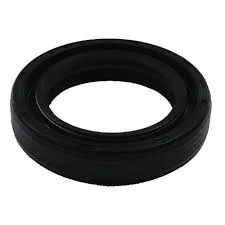9 月 . 17, 2024 14:32 Back to list
Valve Cover Gasket Material - Choose the Best for Your Engine
Understanding Valve Cover Gasket Materials
The valve cover gasket is a critical component of an internal combustion engine, playing a vital role in sealing the valve cover to the cylinder head. This component is essential for preventing oil leaks and ensuring proper engine function. The choice of material for a valve cover gasket significantly influences its longevity, performance, and resistance to engine conditions. Understanding the various materials used for valve cover gaskets can help car enthusiasts and mechanics make informed decisions when replacing this important part.
Common Valve Cover Gasket Materials
1. Rubber Rubber gaskets are common due to their excellent flexibility and resilience. Rubber can withstand high temperatures and is resistant to oil and other automotive fluids, making it a popular choice for many vehicles. However, exposure to extreme heat over time can cause rubber gaskets to harden and crack, leading to leaks if not maintained properly.
2. Silicone Silicone gaskets are often favored in high-performance applications due to their superior heat resistance and flexibility. Silicone maintains its properties across a broader temperature range compared to rubber. This makes it less prone to degradation, allowing it to provide a reliable seal under extreme conditions. Furthermore, silicone gaskets can be found in various shapes and sizes, accommodating a wide range of engine designs.
3. Composite Composite gaskets are made from a combination of materials, often incorporating a fibrous layer sandwiched between rubber or silicone. These gaskets are designed to offer the benefits of various materials, providing a robust and durable seal. They often feature a high resistance to oil, heat, and chemical exposure. Composite gaskets are commonly used in modern engines due to their effectiveness in maintaining a leak-free assembly.
valve cover gasket material

4. Metal While less common for traditional valve cover applications, some engines use metal gaskets, particularly those with high-performance or racing applications. Typically constructed from aluminum or steel, metal gaskets can withstand extreme pressures and temperatures. They provide an excellent seal, especially in environments subjected to frequent thermal cycling. However, proper installation and fitment are crucial, as metal gaskets can be more prone to warping under improper conditions.
Choosing the Right Valve Cover Gasket Material
When it comes to selecting the best gasket material for a valve cover, several factors should be considered
- Engine Type The type of engine can influence the choice of material. High-performance engines typically benefit from silicone or metal gaskets, while everyday vehicles might do well with rubber or composite options. - Operating Conditions If the vehicle will be subjected to extreme temperatures or harsh conditions, a more durable material like silicone or metal may be necessary.
- Installation Proper installation is essential for all gasket types, as misalignment or overtightening can result in leaks, regardless of the material used.
In conclusion, understanding the different materials used for valve cover gaskets is crucial for making the right choice in maintenance and repairs. Each material has its strengths and weaknesses, and the ideal selection will depend on the specific requirements of the vehicle and driving conditions. By selecting the appropriate gasket material, vehicle owners can ensure optimal engine performance and longevity.